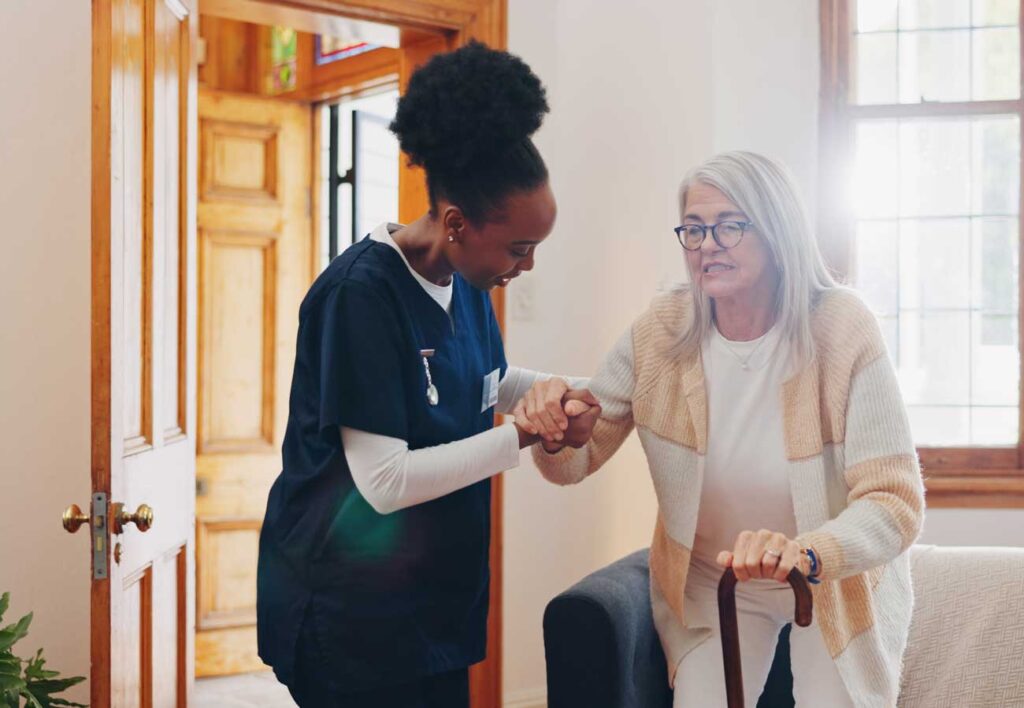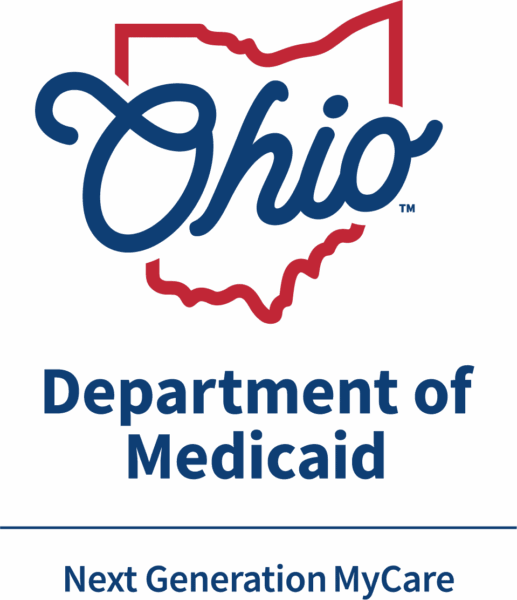Section 1: Facts about Medicaid in Missouri
Medicaid is a health insurance program jointly funded by the federal government and individual states. In Missouri, the program is known as MO HealthNet. The MO HealthNet Division is responsible for processing payments to healthcare providers, while the Family Support Division (FSD) within the Department of Social Services (DSS) handles eligibility determinations for individuals and families applying for the program.
While many adults enrolled in Missouri Medicaid are women, children remain the largest demographic group served by MO HealthNet. As of recent data, approximately 78,000 elderly individuals (age 65 and older) are enrolled in the program. There are currently over 140 FSD Resource Centers located throughout Missouri to support residents with applications, renewals, and questions related to Medicaid eligibility and services.
In accordance with federal regulations set by the Centers for Medicare & Medicaid Services (CMS), Missouri is required to cover a core set of medical services under MO HealthNet.
Services Covered
Per CMS guidelines, Missouri must provide the following services:
- Inpatient and outpatient services
- Nursing facility and skilled home health services
- Durable medical equipment
- Physician and psychiatric services
- Family planning
- Lab, x-ray, and dental services
- Nurse-midwife and nurse practitioner care
- EPSDT screening for children under 21
- Non-emergency transportation
Optional services Missouri may cover include:
- Prescription drugs
- Rehabilitation and mental health care
- In-home services
- Psychiatric and specialty dental visits

Section 2: Who Is Eligible to Apply for Medicaid in Missouri?
Eligibility for the MO HealthNet program is based on multiple factors, including both income and asset limits. Individuals who are disabled, blind, or elderly may qualify if they meet these financial requirements. Pregnant women, children, and low-income families may also be eligible for coverage. As of the most recent data, children remain the largest group served by Missouri Medicaid.
Low-income women who are pregnant or have recently given birth may qualify for MO HealthNet, including postpartum coverage that may extend for up to 12 months after childbirth. Additionally, parents, legal guardians, and caregivers of dependent children in low-income households may also be eligible for coverage. The overall goal of the program is to ensure that low-income residents can access medical care, manage illness, and receive support that prevents or delays disability.
To qualify for MO HealthNet, applicants must be:
- A U.S. citizen, lawful permanent resident, or eligible non-citizen
- A Missouri resident
- Considered low-income or very low-income under federal and state financial guidelines
Applicants must also fall into at least one of the following categories:
- Disabled (or have a disabled family member)
- Blind
- Elderly (age 65 or older)
- Pregnant
- A parent or relative caregiver of dependent children under age 19
Missouri also offers several long-term care Medicaid programs for seniors, including nursing home care, assisted living, and home and community-based services (HCBS). Each of these programs has different income and asset requirements, and eligibility can vary depending on whether the applicant is single, married, or applying with or without their spouse. These long-term care options offer multiple pathways to qualify, and in some cases, a “spend down” option may be available to help applicants meet financial limits.
What Is the Income Limit for Missouri Medicaid?
Individuals who qualify for the federal Supplemental Security Income (SSI) program due to disability are automatically eligible for Missouri Medicaid through MO HealthNet, as long as their income and assets remain within SSI limits. For individuals who are not receiving SSI but are applying directly through MO HealthNet, income should not exceed 85% of the Federal Poverty Level (FPL) for those who are disabled, or 100% of the FPL for those who are blind. In 2025, this means a monthly income limit of $1,109 for disabled individuals and $1,305 for blind individuals. Some disabled individuals may also qualify for MO HealthNet programs that help pay Medicare premiums, deductibles, and copayments, depending on their income and assets.
The elderly may still be eligible for Medicaid in Missouri even if their income exceeds the standard limits by using what’s known as a “spend down.” Spending down refers to the process of applying excess income toward medical expenses each month until the individual’s net income falls within Medicaid eligibility guidelines. This can be done either by submitting medical bills to a caseworker or by making a monthly payment to MO HealthNet, similar to a premium. Once the spend down is met, Medicaid coverage becomes active for that month.
If you’re applying due to age, disability, or blindness, your income must fall below certain thresholds. Income is calculated against the Federal Poverty Level (FPL):
- Aged/Disabled: 85% of FPL = $1,109/month (2025)
- Blind: 100% of FPL = $1,305/month (2025)
Some may qualify by spending down income via medical expenses or premium-like payments to MO HealthNet.
2024 Annual Income Limits by Household Size (138% FPL for Adult Expansion)
| Household Size | Annual Income Limit |
| 1 | $20,782 |
| 2 | $28,207 |
| 3 | $35,632 |
| 4 | $43,056 |
| 5 | $50,481 |
| 6 | $57,906 |
| 7 | $65,331 |
| 8 | $72,756 |
Add $7,425 for each additional household member beyond 8.
How Much Money Can I Have and Still Qualify for Medicaid?
Updated 2025 Income and Asset Limits for Missouri Medicaid
- Regular Medicaid (MO HealthNet for Aged, Blind, Disabled):
- Single: $1,109/month (Aged/Disabled) or $1,305/month (Blind)
Assets: $5,909.25 - Married (both applying): $1,499/month (Aged/Disabled) or $1,763/month (Blind)
Assets: $11,818.45
- Medicaid Waivers and Home/Community-Based Services (HCBS):
- Single: $1,690/month
Assets: $5,909.25 - Married (both applying): $3,380/month
Assets: $11,818.45 - Married (one applying): $1,690/month
Applicant’s Assets: $5,909.25
- Institutional/Nursing Home Medicaid:
- Single: Must contribute income to care facility (less $50/month personal needs)
Assets: $5,909.25 - Married (both applying): Same income rule
Assets: $11,818.45
Married (one applying): Applicant assets: $5,909.25
Community Spouse assets: up to $157,920
Income Criteria: What Counts?
All income sources are counted:
- Employment wages
- Social Security and pension
- Alimony and IRA withdrawals
- Stock dividends
MO HealthNet uses FPL percentages to set limits, varying by applicant type.
Assets Criteria
To be eligible, applicants must have limited countable assets.
Updated 2025 Limits:
- Individual: $5,909.25
- Couple (both applying): $11,818.45
- Community Spouse Resource Allowance (CSRA):
- Maximum: $157,920
- Minimum: $31,584
Countable Assets Include:
- Stocks, bonds, investments
- Checking, savings, and credit union accounts
- Investment properties
- Cash
Exempt Assets Include:
- Primary residence (if valued under $595,000)
- One vehicle
- Household furnishings
- Burial trusts and personal belongings
How long does it take to get approved for Medicaid in Missouri?
Under normal conditions, Medicaid applications in Missouri are processed within 30 to 45 days. However, processing times may extend up to 90 days, especially during high-volume enrollment periods or if additional documentation is needed. You can avoid delays by submitting a complete application with all required information and supporting documents.
Elderly applicants may experience longer processing times due to the required asset verification process. For individuals applying for long-term care Medicaid, such as nursing home or home and community-based services, the state conducts a five-year look-back to review asset transfers and ensure compliance with eligibility rules. This in-depth review can slow down the approval process, especially if documentation is incomplete or if there are questions about prior financial activity. Being prepared with clear records can help reduce delays and improve the chances of timely approval.
Section 3: How to Apply / Sign-Up for Medicaid in Missouri
Missouri residents can apply for Medicaid online, by phone, by mail, or in person at a Family Support Division (FSD) office. While many applicants choose to apply online, all four methods are valid. Before starting the process, it’s important to confirm your eligibility and gather the required documentation.
If you’re applying for yourself and also on behalf of family members, you’ll need to provide information for each person. In some cases, a separate application form may be required per household member. If you have questions about applying for multiple people, contact your local FSD office and ask to speak with an Authorized Representative.
How to Apply Online
The fastest and most commonly used option is the online application through the myDSS.mo.gov website, Missouri’s official healthcare and social services portal. Applicants upload required documents directly and complete the full application through the site.
There are different online forms depending on your situation—whether you’re applying as an individual, for a family, or for someone with a disability. Selecting the right application type ensures you’re prompted to provide the correct documentation. Be as accurate and thorough as possible to reduce the chance of delays or requests for more information.
After submitting your application online, you can typically expect a response within 30 to 45 days. If your application is complete and all documents are provided, it may be processed more quickly. Online applications are often the fastest route to approval.
How to Apply by Phone
You can also apply over the phone by calling the Family Support Division Information Center at 1-855-373-4636. This is a good option if you have questions, need help filling out the application, or prefer to speak with someone directly. Language assistance is available for non-English speakers, including Spanish.
How to Apply by Fax or Mail
Some FSD offices accept applications by fax. To do this, call FSD to begin the process and follow their instructions for submitting documents via fax.
If you prefer a paper application, you can download the form at myDSS.mo.gov or request that a paper version be mailed to you. Once completed, mail it to the address provided on the form or deliver it to your local FSD office. Make sure to follow all instructions carefully, and don’t forget to sign and date the application before mailing it. Mistakes or missing signatures can lead to delays.
How to Apply In Person
You can also apply in person at your local Family Support Division office. This is a good choice for people with unique circumstances, questions about eligibility, or multiple applications to submit. Many FSD offices have application assistants on staff who can guide you through the process.
You may either bring a completed application form or fill one out at the office. Forms are available in English, Spanish, Vietnamese, and Bosnian. If you speak another language or need help, ask for an Authorized Representative who can provide assistance in your preferred language.
After You Apply
It’s common to be asked for additional documents after your initial application is reviewed. If more information is needed, you may be contacted by mail, phone, or email, depending on how you submitted your application. Be sure to respond quickly to avoid delays.
To check the status of your application, visit myDSS.mo.gov or call 1-888-275-5908. Most applicants receive a decision within a month, though this can vary based on individual circumstances and case complexity.
What You’ll Need:
- Proof of U.S. citizenship
- Missouri residency
- Social Security number
- Income verification (pay stubs, tax forms)
- Household size and address
You may need to submit documents for each person applying. After submission, most applicants will receive a response in 30 to 45 days. Elderly applicants with asset reviews may face a longer processing time (up to 90 days).
If additional documents are needed, you’ll be contacted by mail, phone, or email depending on how you applied.
Frequently Asked Questions about Medicaid in Missouri
Can I choose my own caregiver through Missouri Medicaid?
Yes, you can. Iin fact, many families do. If you qualify for Missouri’s Consumer Directed Services (CDS) program, you can choose your caregiver, and that caregiver can be someone you already know and trust. It might be your daughter who’s been helping you cook and clean, or a close friend who’s been by your side through every doctor’s appointment.
At FreedomCare, we’ve helped thousands of families across Missouri make this happen. We guide you through the CDS process so that your caregiver can get paid, and you can keep your care in the hands of someone who truly cares about you.
Can I get paid to take care of a family member on Medicaid?
Yes, in many cases you can. We know how hard it can be to juggle a job while also being the one who bathes Mom, makes sure Dad takes his medication, or drives your disabled brother to appointments. Through Missouri’s CDS program, you can get paid for the care you’re already giving, legally and reliably.
FreedomCare makes it easy. We help you get enrolled, get trained, and get paid. No guesswork. Just support from people who’ve helped others like you take care of the people they love.
What happens if I make too much money to qualify for Medicaid?
You’re not alone. Many people in Missouri fall into this difficult “gray area.” If your income is too high for Medicaid, but your medical expenses are high, you may still qualify through something called “spend down.”
Spend down means you subtract your medical expenses from your monthly income. Once you “spend down” to the income limit, you become eligible for Medicaid. We’ve worked with folks who were just a little over the limit, and helped them figure out exactly what paperwork and expenses to show to qualify.
Can I apply for Medicaid if I already have Medicare?
Yes, and if this is your situation, you may actually be eligible for extra help. Many people don’t know that if you’re on Medicare and Medicaid, Medicaid can help cover things like Medicare premiums, deductibles, and out-of-pocket costs.
If you’re over 65 or disabled and living on a limited income, it’s worth checking. We’ve supported many Missouri seniors who thought Medicare was all they could get, but now receive help through MO HealthNet, too.
What are MO HealthNet Managed Care Plans, and how do I choose one?
Once you’re approved for Medicaid in Missouri, you’ll likely need to choose a Managed Care Plan. These are insurance providers that partner with MO HealthNet to deliver your Medicaid benefits, names like UnitedHealthcare, Home State Health, and Healthy Blue.
The best plan for you depends on your needs. Maybe you want to keep seeing the same doctor. Maybe your child needs access to a certain specialist. If you’re not sure how to pick, FreedomCare can help walk you through your options so you can make the best choice for your family.
What if my Medicaid application is denied? Can I appeal?
Yes, and we encourage you not to give up. We’ve worked with plenty of folks who were denied the first time, only to be approved after an appeal.
If your application is denied, you have the right to file an appeal through Missouri’s Family Support Division. You typically have 90 days from the date of the decision. Sometimes it’s a missing document or a small mistake. Other times, the case just needs better explanation.
If you feel overwhelmed by the process, and many people do, FreedomCare can help point you in the right direction.
How often do I have to renew my Medicaid benefits in Missouri?
In Missouri, you typically have to renew your Medicaid coverage every year. The state will send you a notice when it’s time, but many people miss it, especially if they’ve moved or changed phone numbers.
At FreedomCare, we always remind families to check their mail, keep their contact info updated, and stay ahead of deadlines. Losing Medicaid because of a paperwork issue is frustrating and avoidable. If you’ve worked with us before, you know we stay on top of that for you.
What services are NOT covered by Missouri Medicaid?
This is a smart question, especially if you’re planning long-term care. While Medicaid covers a wide range of services, there are some things it generally doesn’t cover, such as:
- Cosmetic procedures
- Over-the-counter medications (unless prescribed)
- Most adult dental work (except for medical necessity)
- Private nursing
- Experimental treatments
If you’re unsure whether something is covered, a surgery, a prescription, or even home modifications, we can help you find out before you pay out-of-pocket.
Can undocumented immigrants get Medicaid in Missouri?
In most cases, undocumented immigrants are not eligible for full Medicaid. However, they may qualify for Emergency MO HealthNet, which covers urgent medical situations like labor and delivery.
We understand this is a sensitive and emotional topic for many families. If you’re caring for a loved one who is undocumented but in need of help, you’re not alone. Our team is here to help explain your options in a caring and respectful way.
Does Medicaid cover nursing homes or assisted living in Missouri?
Yes, MO HealthNet does cover nursing home care, and in many cases, home-based alternatives too, through Home and Community-Based Services (HCBS) waivers. If you or a loved one can no longer live safely at home without help, Medicaid might pay for a facility or help bring care into the home.
We’ve worked with many families who thought nursing homes were their only option, until we helped them access programs that paid their daughter, son, or close friend to care for them at home. If staying in your home matters to you, let’s explore those options together.
Need Help?
Whether you’re applying for yourself, a spouse, or your entire family, getting help early can make all the difference. Make sure to reach out to a local FSD office or speak to an MO HealthNet representative if you need guidance.








